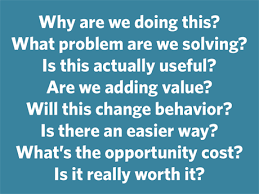It’s interesting to me how sharing an idea after doing a little informal research leads to so many more questions. Even more intriguing is how, when you share the information you’ve gathered from your “research,” the questions and ideas of others deepen your own understanding.
Recently, a fellow teacher and I co-facilitated a session during a day of professional development. We shared information on how to use peer revision groups during writing workshop. It was not anything that we had created, but rather, something we found on another blog that both of us follow. As we shared the blog and some short video clips, people began to immediately think about how this would look and sound in their own classroom. From there, questions began to emerge. Will this work for my reluctant writers? What about the students who are timid about sharing? How much time will this take? How often should this happen? When in the writing process do you see this occurring? Are there other steps in the process that would help? How do you determine your groups?
Wow! GREAT questions! What was even better was that, as the questions were being asked, we worked together as a group to extend our thinking. We shared ideas, not necessarily answers, related to the questions. As I reflect on that experience, it makes me realize that when we focus our teaching on learning, we do just that. We learn as we teach. There is not “one way” nor is there a “best way” to do anything. When we talk together and share our questions and understandings, when we push each other’s thinking, we find new ways to think and apply them in order to teach and learn with our students.
This experience also makes me realize how we need to trust each other when asking questions. We need to trust that questions are just that; questions, not a hidden way to manipulate and change the minds of those listening. None of us has all the answers, so we must talk openly and honestly to push our thinking. It’s not the answers that help us learn, it’s the questions, for without a question, there is no need to find an answer.
Stay curious! What questions do you have about teaching and learning?
Please note: The views and opinions I express in my blog do not necessarily reflect those of my employer or colleagues.

…and this is what you coaches allow to happen. Before, we never had the opportunity to think about teaching and learning and ask questions, and really THINK about the questions and the answers. Teachers thought they were all alone out there with their questions. Having the chance to hear that others have the same “stupid questions” allows teachers to feel more confident to try something new that they never would have done otherwise without that opportunity for metacognition.
And, because teaching is such a complicated profession, there really are no “stupid questions”. 🙂 There are always new ways to approach the challenges of teaching and learning.
And I loved your point about not necessarily having answers. Teaching is such a complex profession that sometimes there aren’t necessarily answers, but by asking the questions causes us to pause and think deeper about a whole host of things. Thanks for writing this!
I heard great things about this session and have plans to draft you to bring it to my students on campus next year! Thanks for all you are doing.
I’d be happy to do this and would love to include Mackenzie Sherbondy, the teacher who presented with me. We did this together in her classroom, so we have a video of her students in peer revision groups and Mackenzie debriefing with them the next day. The students’ comments about how the process felt was very honest and sincere.